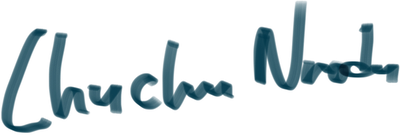Losing your job or regular source of income is a probability at some point for most working people. Not sure what the stats are, but daresay that anyone who goes through life without any periods of unemployment must be in the lucky minority.
Without diving into specifics, think about the related loss of motivation, position, influence, identity, confidence that could come with it. Pretty major life change, huh? So, it's interesting that most people don't have a plan for this dreaded event that could happen.
Working in the US as an expat with very interesting hiring and immigration restrictions, this wasn't my first rodeo - so when I got let go at the start of the pandemic, I knew better from previous times and approached it as a storm that I had to survive. Here are some things that helped.
Before the storm
- Preparing starts before the event, so save 3months/6months/1year of your salary or living expenses. It could take 1-3 months+ to get and start a new job. This keeps you from instant anxiety, and allows you to execute any short term plans without any immediate disruptive changes to your standard of living. I had over a year's saved so I was good, but didn't think i'd actually have to burn through most of it, which ended up happening.
- Work on a 1-3 month improvement plan: pick one thing from your list of "with more time i'd love to learn/do X" and get started. It doesn't have to be specifically career focused, could be a life goal but as the 'chief athlete' of your 'professional team', you have to stay in the game and be sure not to get rusty.
- Create a disaster recovery or "what-to-do-if-i-lose-my-job" plan that you can take action on in your current situation i.e not a wishlist - things you can actually do, with the resources you have.
During the storm
-
You don't know how long it'll last. Assume at least 3 months, and start doing your things for the quarter. Could be learning an instrument, a new skill, or hobby - as long as it's something within your control to make progress on, that you find rewarding. Almost counter intuitive to my tip on budgets but take a short holiday to reset if you can, problem no de finish and yours might be just...hmm.
-
Stabilize or reduce your running costs. Get into a monthly routine of expenses so it's clear what it costs you to operate at a baseline level through this time. I went down to a third of my 'pre-storm budget' and quickly understood the difference between essentials and nice-to-haves. Essentials kept me sane, others I could do without for some time.
- Exercise daily, or at least take a 30 min walk everyday to get fresh air and clear your head. Now, you have more free time for this. Your mind and body are linked so working out gets your mental engine firing as well.
- Eat good: Eat healthy, don't binge eat. The link with food & your mood will be very observable now. I like cooking so, used the time to perfect my skills and try new things. Cooking's great for your budget and health too.
- Engage with your spiritual source through introspection, prayer, meditation, or whatever spiritual practice checks this box for you. You should slow down, get and stay centered for clarity on what your direction or next steps should be.
- Get socially involved: in anything that brings you into contact with people for a common goal e.g meetup groups, volunteer. Working on something with others gives a sense of purpose, even if you're not getting paid. If you're not burnt out it could be good to replicate this feeling until your next paid role.
- Find your optimal work/life routine and lean into it.
- Read a lot more and attend events you'd normally miss because of timing at work.
- Work harder for yourself than you have for any employer.
After the storm
- When you land the next role, take a step back, see what you accomplished and beef up those savings.
- Update your disaster recovery or "what if i lose my job plan".
- Pay it forward, write/share your lessons during the storm.
